The Myers-Briggs® Personality Types When They Lose Their Temper
Ever wondered how each of the Myers-Briggs® personality types shows up when they lose their temper? Over the last ten years, I’ve spoken with hundreds of different people about the issue of anger. While I believe it has more to do with enneagram type than Myers-Briggs® personality type, there are some distinct patterns that seem to show up in specific types and that’s what we’ll be exploring today. As always, feel free to leave your thoughts or any input or experiences you have in the comments at the end of the article! I’d love to hear what you think.
Not sure what your personality type is? Take our new personality questionnaire here. Or you can take the official MBTI® here.

Not sure what your enneagram type is? Take our new personality questionnaire here!
This article contains affiliate links. If you purchase an eBook from one of my links I get a small percentage back to help run my site.
Table of contents
Estimated reading time: 21 minutes
What You’re Like When You Lose Your Temper, Based On Your Myers-Briggs® Personality Type
The ENFP

When these types lose their cool, they obsess over minutiae and feel like their broad vision is gone. They get infuriated by little details that never used to bother them before. Loose string on their sweater? Pull off the sweater and burn it. There’s no better way to handle that situation, right? Feeling unhealthy? Now is the time to investigate every ingredient of every item in the refrigerator and sort out all the bad foods. If you get in the way of a furious ENFP, chances are they’ll want to avoid you and get away. If you force an interaction, they can quickly remind you of every failure you’ve had in your past or all the little details that you’ve forgotten. They might remind you of this while they pluck loose hairs from your jacket at the same time.
Things That Make ENFPs Lose Their Temper:
- Narrow-mindedness
- Being micro-managed
- Feeling trapped
- Having their ideas dismissed
- Inconsiderate behavior
- Emotional manipulation
- Guilt-tripping
- Condescension
- Being “labeled”
- Lack of empathy
- Having to spend a great deal of time on nitty-gritty, mundane tasks
The ENTP

Similar to ENFPs, when ENTPs lose their cool, they also get stuck on details. Everything around them seems wrong. Their hair is too short or too long, their desk is too messy, they have a headache that is certainly the sign of a brain hemorrhage. They feel panicky, nitpicky, and paranoid – all qualities that they don’t typically emulate or feel on a deep level. They simultaneously want to tell everyone to F*** off and be reassured that they matter to them. They tend to compartmentalize their feelings a great deal, so an outburst usually surprises them as much as it surprises other people. They often appear patient for a great deal of time until they suddenly explode – especially at people who seem stupid, incompetent, or oblivious.
Things That Make ENTPs Lose Their Temper:
- Narrow-mindedness
- Logical fallacies
- People who misinterpret them as “mean” when they are trying to argue a point
- Being stuck in long, mundane discussions.
- Having their ideas dismissed or laughed at.
- Being controlled
- People who demand respect without earning it
- People who impede progress or innovation
The INFP

Rarely ones to erupt outwardly, when INFPs do lose their temper it tends to shock and astound the people around them. People who are used to them being calm and tolerant will quickly recoil when faced with their rage. Typically, when INFPs are angry they’ll ignore or avoid the people who are bothering them. They tend to withdraw rather than attack. But if their nerves are tested to an extraordinary degree, they will concentrate their rage very specifically on the person attacking them. They will critically castrate your arguments, point out errors in logic, and make sarcastic jokes that hit below the belt with arrow-like precision. Just be careful, chances are that these types will feel remorseful after blowing up. That is, unless you violated one of their values. Then they may just cut you off completely.
Things That Enrage INFPs:
- Being in a controlling relationship
- Assumptions being made about them
- Bullies
- Power-hungry people
- Authoritarianism
- Being underestimated
- Injustice or unfairness
- Not being free to imagine
- Having their feelings belittled
- Having their values violated
- Hypocrisy
Read This Next: 24 Signs That You’re an INFP, the “Dreamer” Personality Type
The INTP

Normally reserved and calm, a furious INTP will seem nothing like their typical self. That said, it takes a lot for an INTP to really lose it. Normally they’ll humor the person who’s annoying them, making sly, humorous jokes at their expense (usually without the individual knowing it). They also may tend to just leave the situation if they are frustrated with someone, feeling like it’s a waste of their time to engage.
When INTPs do lose their temper (which is usually rare), they change dramatically. Suddenly it feels to them like everyone has turned against them. They either want to completely ignore your existence or they will lash out at whoever has angered them. Their arguments, typically precise and logically calculated, will become heavily personal. They will attack your character, remind you of your hypocrisy, or unload all their feelings of frustration on the furniture around them. They often feel insecure about their relationships during these times, and may even abandon relationships before they feel they will be inevitably abandoned. But be aware, this isn’t typical for INTPs. INTPs are normally extremely patient and can handle a great deal without losing their temper. It would normally take something very heinous for them to show this kind of outward display. Chances are if they’ve reached this point, they’ve already over-analyzed the problem in their head to a torturous degree. They also must be under an incredible amount of stress to respond like this. Afterwards, they’ll probably feel remorseful and irritated with themselves for showing their emotions – something they tend to feel anxious doing.
Things That Enrage INTPs:
- Logical fallacies
- Emotional chaos and over-reactions
- Overbearing/pushy people
- Feeling micro-managed or controlled
- People who pull rank
- Emotional manipulation
- When people try to justify inaccurate or unjust decisions
- Being interrupted or talked over
- People who barge in on their personal space
The ENFJ

Typically warm and generous, ENFJs who have lost their cool become scarily withdrawn and reclusive. Their normally gregarious personality and expressive face turns into a stoic, guarded presence and a rigid, unreadable expression. Inside they feel a desire to scream and punch and throw things, but they know this would disrupt the overall harmony of the group – something that they usually fight against. They want to make sense of their anger, to take it apart and find out whether they even have a right to be angry. Unfortunately, making sense of it can be an endless battle with no resolution. Over time, this can wear down the ENFJ’s resolve and they might suddenly erupt over something minor – only to regret it later. That said, if they see someone else being wronged, their anger will be more obvious and intense. In cases of injustice or meanness, the ENFJ can become a fiery source of fury. They have no problem entering a yelling match with someone who has hurt one of their friends or mistreated someone they love.
Things That Make ENFJs Lose Their Temper:
- Having their intentions misrepresented
- Being misunderstood or distrusted
- Having their words taken out of context
- Lack of empathy from others
- Inconsiderate or rude behavior
- Having their insights belittled or dismissed
- Being interrupted
- Having to focus extensively on detailed, mundane, impersonal tasks
- Betrayal of a friend or loved one
- Bullying or trolling
The ENTJ

ENTJs like to keep things under control – themselves included. This means that when they experience anger, they will typically express it, but with full control over their words and actions. That said, when they are pushed to the brink and experience rage, they can behave very differently. Often they lash out at the incompetence or unhelpfulness of other people. They might mutter to themselves about how everything is left up to them while they furiously try to tackle as many projects as possible. Many ENTJs I’ve spoken with admit to having road rage or breaking things when they really lose their temper. They said they often feel abandoned by other people and overwhelmed by burdens that they feel others should be helping with. When these bouts of rage are experienced, ENTJs tend to feel remorseful and ashamed of themselves afterward. They place such a high priority on staying in control that losing control of themselves, even for a few moments, feels like a huge failing to them.
Things That Enrage ENTJs:
- Being surrounded by incompetence or laziness
- Complaining or pouting
- Emotional over-reactions to normal day-to-day events
- Hypocrisy
- Having their ideas or vision dismissed
- Being micro-managed or controlled
- Feeling like their time is being wasted
- Having to engage in small talk for long periods
- Feeling “stuck” in a situation that lacks possibility
The INFJ

Typically gentle and patient, INFJs can be remarkably destructive when they lose their temper. They tend to restrain mild aggressions and repress anger for as long as possible, but when they reach a breaking point – they really do let loose. They might stress eat everything in their refrigerator, drink excessively, frantically clean the house, or spend every last dollar on their credit card. Impulsivity reigns when the INFJ is at a point of rage. They feel like lighting a match, setting fire to their life, and walking away from it with a blaze erupting in their wake. They may hastily end their relationships, get on a plane to somewhere new, or let the person who’s causing them stress hear every past mistake and offense they’d previously ignored. Once they have vented their anger, INFJs tend to feel remorseful, drained, and ashamed of themselves. Learning to manage stress, set healthy boundaries, and vent their emotions to friends they trust before they reach a breaking point is essential.
Things That Make INFJs Lose Their Temper:
- Having their intentions misunderstood
- Condescension
- Being taken for granted
- Having their vision or predictions dismissed
- Controlling or overbearing people
- Bullying or Trolling
- Loud noises or interruptions
- Being “barged in on” unexpectedly
- Having their statements taken out of context
Read This Next: A Look at INFJ Rage
The INTJ

Normally composed and restrained, INTJs who are losing their temper become reckless and impulsive. Similar to the INFJ, they tend to be indulgent when they lose their temper. They might go on a massive shopping spree, break things they once valued, or binge drink or eat. When INTJs are simply mad, they will usually isolate and get especially curt and critical. But when they really lose their temper, they don’t just let down their walls – they blow them to smithereens. Think Wolverine and the Hulk (but intelligent) rolled into one. They will feel like destroying everything in their path. Their words become scathing and ruthless, and they stop caring about the future impact of their actions. Fortunately, INTJs don’t tend to experience these bouts of rage very frequently unless they are in environments where they are not valued or are surrounded by gross incompetence, indignity, or emotional chaos.
Things That Make INTJs Lose Their Temper:
- Unexpected interruptions or surprises
- Not getting enough alone time
- Narrow-minded assumptions
- Being micro-managed
- Incompetence or laziness
- Loud, imposing people
- Emotion-based decision making
- Having their advice or insight dismissed or ignored
- Being interrupted
- Being pushed into social situations they’re not ready for
Read This Next: 5 Reasons Why You’ll Need an INTJ During a Zombie Apocalypse
The ESFP

When ESFPs lose their temper, they usually express it relatively quickly. They aren’t ones to compartmentalize or repress things most of the time. That said, they don’t always feel like the person who’s offending them is “worth” their anger. In these cases, they tend to get more passive and sarcastic than outright furious. When someone really infuriates an ESFP, they will show it – verbally berating the individual or outright yelling. They tend to feel a restless need to physically express their anger, so they often punch pillows, kick rocks, or pull on their hair. They may go for a run or do something physical so that they can control their temper before it gets to a breaking point. If they have no outlet for their anger, they can get gloomy, pessimistic, and reclusive. Usually, ESFPs aren’t anger-prone individuals (although things like enneagram type can impact this). In normal day-to-day life, they are likely to shrug off minor offenses or find something funny in a negative situation to keep their outlook positive.
Things That Make ESFPs Lose Their TEmper:
- Feeling controlled or micro-managed
- Feeling trapped
- Being stuck in a sedentary lifestyle
- Lack of empathy from others
- Inconsiderate behavior
- Being underestimated or mocked
- Having their time wasted
- Being stuck in circular, theoretical conversations that have no practical application
- Unrealistic people
The ESTP

When ESTPs lose their temper they crave some kind of physical outlet for their aggression. Like ESFPs, they tend to want to lash out physically in some way. This doesn’t mean they get violent, but they may punch pillows, kick inanimate objects, or take on the “fight” in fight or flight responses. They slam doors loudly, rage drive, or look for an impulsive escape from what’s bothering them. They can also become verbally brutal, using their words like daggers, logically tearing apart someone else’s argument, life choices, or inconsistent actions. Their rational introverted thinking side tends to stop them from being too reckless and volatile, but it’s still something to watch out for. Usually, before they get to this stage of anger, they will try to rationalize or compartmentalize their frustrations rather than letting their emotions get the best of them. ESTPs hate feeling out of control, so they will try to manage their emotions through rational analysis before losing their cool.
Things That Make ESTPs Lose Their Temper:
- Unrealistic people
- Chatterboxes who don’t have a point
- Being micro-managed
- Feeling “trapped”
- Being pushed to make a decision before they’re ready
- Being stuck in overly-theoretical discussions that don’t seem to have a practical application
- Emotional over-reactions to ordinary events
- People who disrespect their things
- Being belittled or told what they “can’t” do
- Bad drivers or people who invade their space
The ISFP

These types tend to have varying responses to anger. According to the MBTI® Manual, they are the type most likely to get angry and show it, as well as the type most likely to get angry and not show it. This goes to show that no two people of the same type are exactly alike. As I’ve spoken with ISFPs about this, I’ve noticed a unique trend. They tend to repress anger towards individuals they don’t feel are worth their energy. They’re more likely to get angry and show it with someone who they actually value – a family member or loved one. They have to feel like their words will actually matter and be valued, otherwise they see no point. When they do lose their temper, they become harsher, critical, and more aggressive than usual. Every single ISFP I spoke with also said that they tend to keep their cool (outwardly) for a long time before they actually get mad. But when they do get mad, they admit to getting explosive, cursing, and hurling objects or kicking inanimate objects. But if an ISFP has gotten to this level of anger, chances are they’ve dealt with a whole lot of other frustrations prior to this point. Or you have done something that strongly violated their sense of right and wrong.
Things That Can Make ISFPs Lose Their Temper:
- People making assumptions about them
- Being labeled
- Dealing with impractical, unrealistic people
- Being controlled
- Being pressured to make a decision before they’re ready
- Antagonists
- Manipulative, phony people
- Fatigue or Hunger
- Being interrupted or overlooked in a conversation
- Arrogance
- Hypocrisy
The ISTP

ISTPs don’t like to give in to their emotions very freely, and will usually try to compartmentalize feelings of anger rather than immediately showing them. However, if someone is pushing into their personal space, hoarding their time, or making them feel trapped, they will quickly blow a fuse (and probably enjoy the chance to get back at them). This can show up in sharp, dismissive remarks or in actual physical tension (clenching fists, throwing things, etc,.) If appropriate, they may even try to have a physical altercation with the individual (for example, if they’re defending someone in danger). When ISTPs are both highly stressed and angry, they can become loud and abrasive, throwing out personal attacks and criticizing someone’s personal failures and shortcomings. They usually feel especially remorseful after these outbursts, even if they were in the right. They hate feeling like they couldn’t control themselves or manage their emotions in a composed, rational way.
Things That Make ISTPs Lose Their Temper:
- Emotionally over-reactive people
- People barging in on them
- Being controlled or micro-managed
- Respect being demanded without being earned
- Being forced into decisions before they’re ready
- Not getting enough alone time
- Bureaucracy and wasteful rules
- Being forced to talk about their feelings
- Feeling trapped or sedentary
- Impractical, unrealistic people
- Being stuck in roundabout, unrealistic conversations
The ESFJ

Warm and generous, ESFJs don’t typically blow up on a regular basis (unless they are regularly stressed). These types would rather maintain a sense of composure than look out of control. That said, when they do really lose their temper they can become quite critical and passive-aggressive. This period of anger is usually hard on them because they tend to turn their critical eye inward. They see all their mistakes, failures, and shortcomings – and even if it isn’t obvious on the outside, many ESFJs feel angrier at themselves than others. They tend to want to get away from everyone else when they’re at a breaking point so that they can avoid making a scene or losing control.
Things That Make ESFJs Lose Their Temper:
- Rudeness or inconsiderate behavior
- Rule-breaking for no good reason
- Being in a messy, disorganized environment
- Wishy-washy or undependable people
- Lateness
- Trolling
- Impracticality
- Lack of empathy or concern for others
- Laziness or procrastination
The ESTJ

While ESTJs are often misidentified as being angry, they are actually more straightforward and direct than furious. Their no-nonsense, straight-to-the-point manner of speaking can give people the impression that they’re mad when they’re really just going about their day. For the most part, ESTJs like to have a handle on their anger. But when they do get angry, they tend to ruminate on past mistakes or feel like they are alone and nobody is helping them with the burden of all their tasks. When ESTJs aren’t merely angry but furious, they tend to yell at people, telling them how they’ve abandoned them or left all the work to them instead of pulling their own weight. They may shout out accusations of incompetence, selfishness, or laziness. This is probably because ESTJs often lose their temper when they’ve become overburdened by their responsibilities and burned out from being “the responsible ones.”
Things That Make ESTJs Lose Their Temper:
- Incompetence
- Procrastination
- Laziness
- Complaining or whining
- Unreliability
- Unexpected change
- Being surrounded by mess or disorder
- People who respond with extreme emotions to normal situations
- Impractical people
- Having their time wasted
The ISFJ

According to the MBTI® Manual, ISFJs are one of the four types most likely to get angry and suppress it rather than showing it. When these types feel enraged, they tend to bottle it up and try to analyze the situation logically. They often want to have a friend or confidante that they can confide in when they feel angry, so they can get help making sense of their emotions and let them out before they explode. When ISFJs do lose their temper, they tend to be filled with worry, uncertainty, and fear. They will see a thousand ways that everything could go wrong and will appear more anxious than accusatory. Their anger will seep out in a confusing muddle of words and physical expressions. They often don’t direct their anger at any one person but force their anger out at “the world” because they feel like it has left them unsafe, abandoned, or insecure.
Things That Enrage ISFJs:
- Inconsiderate behavior
- Noisy, brash people
- Having their values violated
- People who are undependable or irresponsible
- Having their personal experiences dismissed
- Messiness and disorder
- Having their feelings rationalized away
- Condescension or arrogance
- Having to adjust to change unexpectedly
The ISTJ

ISTJs prefer to stay calm rather than lashing out when they are angry. They are more likely to make sarcastic comments or critical remarks than show up in an explosive manner. That said, if they are running late to something, dealing with a lot of change, or having to adapt to unexpected circumstances, they can become highly irritable and edgy. If they do lose their cool, they tend to be very curt, harsh, and withdrawn. They are more likely to disappear and vent their anger privately than make an explosive scene publicly. If they can’t get away then they will often just go silent and become unresponsive to everyone in their environment. Their physical movements will be more aggressive than usual (rather than closing a door they’ll slam it, rather than putting a cup down on the table they’ll smash it by mistake).
Things That Make ISTJs Lose Their Temper:
- Undependability
- Lateness
- Poor drivers
- Having to deal with unexpected change
- Having their personal experiences or knowledge dismissed
- Dealing with emotionally over-reactive individuals
- Having their personal space impeded on
- Disloyalty
- Dealing with unrealistic people
How to Deal with Anger (for all the personality types):
It doesn’t help that much to simply know what makes you angry – you need to be able to address the anger as well. Some anger is good, and it’s a catalyst for growth and much-needed change. Some anger is bad and is the result of one-sided thinking and impatience. The root of almost any kind of anger is stress, however. If you can find a way to manage your stress levels, then you can often find ways to deal with your anger. Here’s an article about how the Myers-Briggs® personality types react to stress to help you find some solutions for the underlying reasons for your anger.
What Are Your Thoughts?
Did you enjoy this article? Do you disagree? Let us know if you have any thoughts or insights to share!
Find out more about your personality type in our eBooks, Discovering You: Unlocking the Power of Personality Type, The INFJ – Understanding the Mystic, and The INFP – Understanding the Dreamer. You can also connect with me via Facebook, Instagram, or Twitter!
Sources:
The MBTI® Manual – Third Edition
Was That Really Me? How Everyday Stress Brings Out Our Hidden Personality by Naomi Quenk






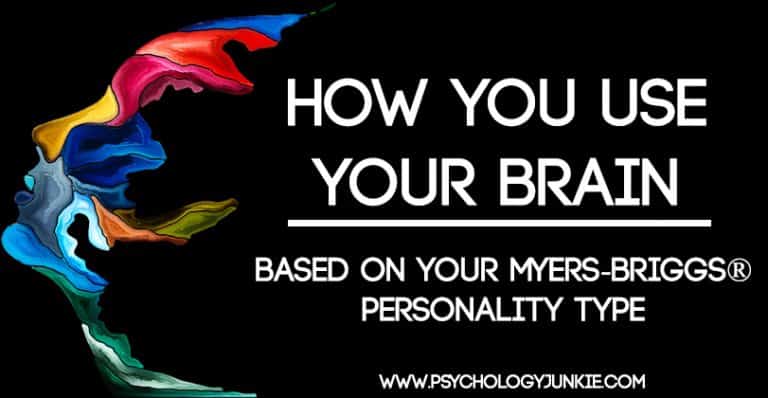
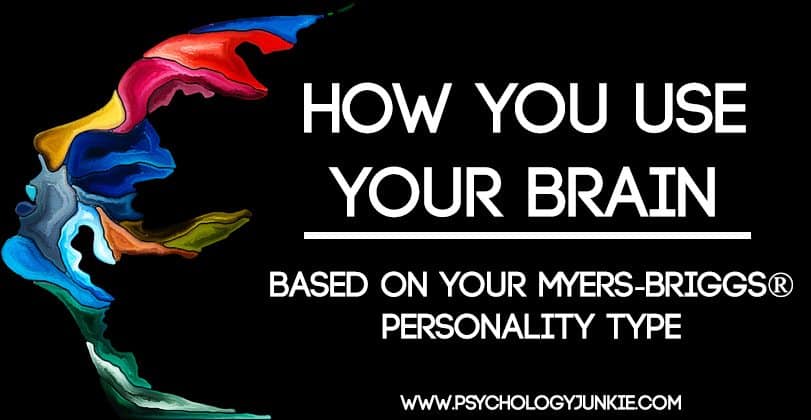
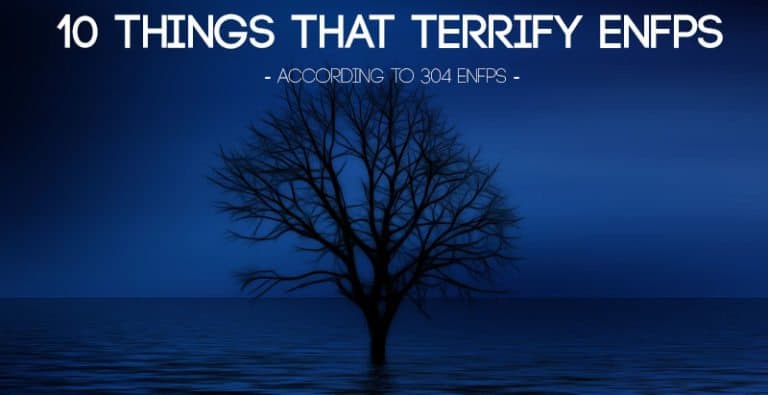
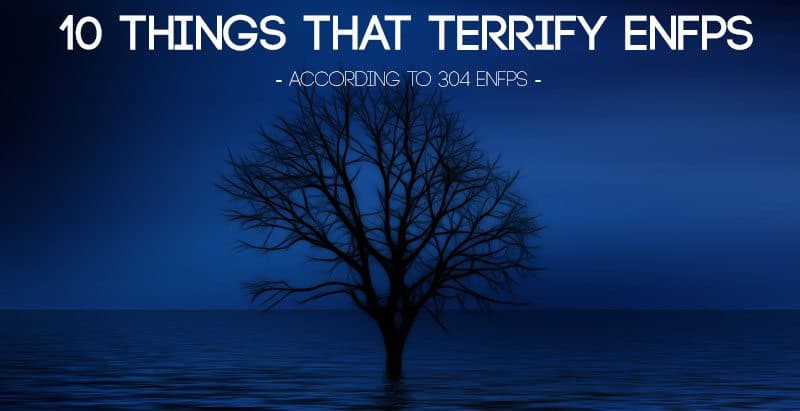


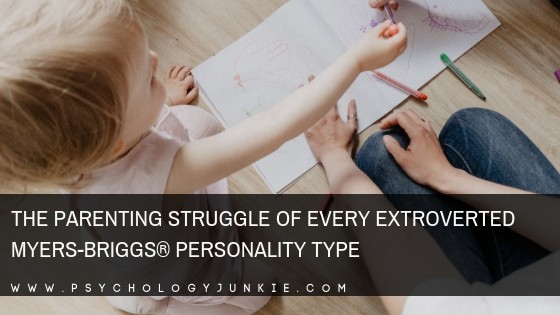
OMG! This is spot on for me, an INFJ and my friends, INTP and ENFJ. Excellent article ~ very well researched and superbly articulated.
Susan, like you, I am a certified MBTI practitioner, though it has been years since I’ve used it in a formal setting. I continue to study and apply it to daily life and in my job and love it as much as when I was first introduced to it back in 1990. Somewhere along the line, I found you. I can say, without a doubt, that you are the absolute best MBTI practitioner I have ever come across. IMHO, your insight, understanding, and application of the intertwined effect of the subjective/objective aspect of each function and their effect on the whole is matched by no other. I look forward to every single post from you. Thank you for bringing sharing those insights with all of us! Carol ESTJ
Hi Carol! Wow! This means a great deal to me. Thank you so much! I really appreciate your kind words – they’ve made my day 🙂 I also rarely get to hear from ESTJs, so that’s a lot of fun! I’m glad you can still use MBTI in your career – it is so helpful!
Much love, Susie